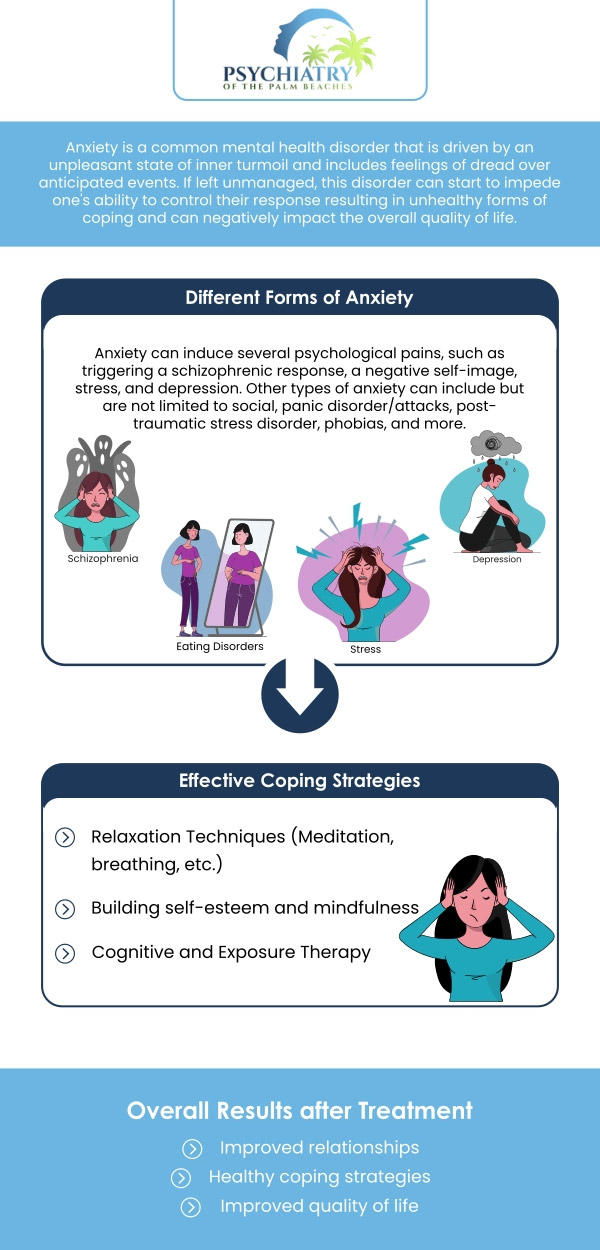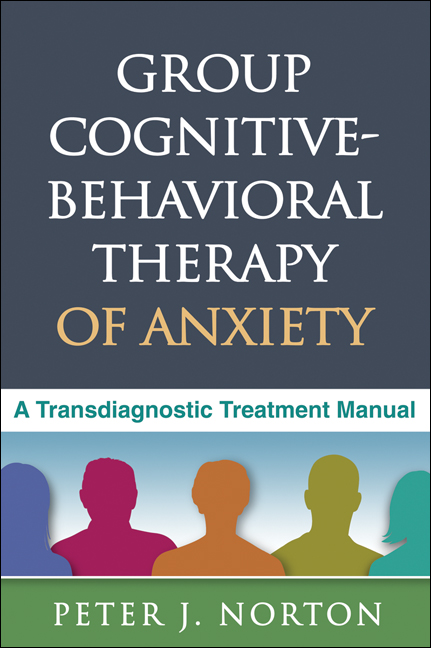Find peace and clarity with reputable counseling services for anxiety
Find peace and clarity with reputable counseling services for anxiety
Blog Article
Discovering Different Techniques in Coaching for Anxiety Condition for Long-term Adjustment
When tackling stress and anxiety conditions, it's vital to explore a selection of therapy approaches. Each approach supplies distinct understandings and devices to assist you handle your symptoms successfully. You might locate that integrating strategies can yield the finest outcomes. Understanding the subtleties of these methods is key to cultivating long lasting change. Suppose the best combination could release a new level of psychological wellness for you?
Understanding Anxiety Problems: A Quick Summary
Stress and anxiety problems, which affect countless people worldwide, can considerably affect day-to-day live. You could experience overwhelming sensations of anxiety or fret that seem uncontrollable. These sensations can bring about physical symptoms like an auto racing heart, sweating, or perhaps lightheadedness. Common kinds of anxiousness conditions include generalized anxiousness condition, panic attack, and social anxiousness disorder. Each has distinct indicators, however they all share a tendency to disrupt your regular and relationships.Understanding the origin of your stress and anxiety is crucial. It might come from genes, brain chemistry, or life experiences. Acknowledging your triggers can aid you manage your responses much better. It is essential to bear in mind that you're not the only one in this struggle. Several people encounter similar challenges, and looking for aid is a solid step towards sensation better. By learning regarding stress and anxiety problems, you're currently on the course to understanding and managing your problem extra successfully.
Cognitive-Behavioral Therapy: Testing Adverse Thought Patterns
In Cognitive-Behavioral Treatment, you'll start by determining the negative idea causes that add to your anxiety. Counseling services for anxiety. You'll work on replacing them with more positive alternatives when you recognize these ideas. Together, you'll construct efficient coping approaches to help manage your anxiety in daily situations

Determining Adverse Idea Triggers
Recognizing the particular triggers behind your negative thoughts can be crucial in managing anxiousness when you experience moments of distress. Start by paying focus to circumstances that provoke sensations of fear or worry. Is it a crowded room, a forthcoming target date, or a discussion with specific people? Write down these instances in a journal. This will help you determine patterns in your reasoning. Additionally, notice physical experiences that accompany your adverse thoughts, like an auto racing heart or tightness in your chest. By determining these triggers, you get understanding into what's sustaining your stress and anxiety. Understanding these connections is the very first step in challenging those ideas and inevitably regaining control over your psychological responses.
Changing Ideas With Positives
Testing unfavorable thought patterns is an important action in transforming your attitude and decreasing stress and anxiety. You may often locate yourself trapped in cycles of self-doubt or catastrophic thinking. As opposed to allowing these thoughts dictate your sensations, practice replacing them with favorable affirmations or practical alternatives. When you believe, "I can't manage this," move it to, "I can handle obstacles one step at a time." This simple adjustment can greatly impact your emotional state. Consistently recognizing and responding to these negative thoughts assists create a healthier internal discussion. Bear in mind, it requires time and effort, but consistently exercising this technique can bring about lasting change, encouraging you to face anxiousness with restored confidence and durability.
Structure Coping Techniques Together

Mindfulness and Acceptance-Based Approaches: Growing Present-Moment Understanding
As you browse the complexities of anxiousness, integrating mindfulness and acceptance-based approaches can considerably boost your ability to cultivate present-moment understanding. By concentrating on the right here and currently, you'll find that you can observe your thoughts and sensations without judgment. This method helps you recognize your anxiousness without really feeling bewildered by it.Engaging in mindfulness exercises, such as deep breathing, body scans, or guided reflections, enables you to ground yourself in your existing experience. Acceptance-based methods encourage you to welcome your feelings instead than fight versus them. They shed their power over you.Incorporating these practices into your daily routine can change exactly how you respond to anxiousness when you approve your feelings. You'll create durability and learn to navigate difficult situations with better ease. Inevitably, growing present-moment awareness lays the structure for lasting modification, equipping you to lead an extra fulfilling life.
Exposure Therapy: Facing Concerns Slowly
Exposure treatment assists you challenge your fears in a gradual method, making it less frustrating. You'll learn strategies to face anxiety-provoking circumstances action by action, while also developing coping methods to manage your reactions (Counseling services for anxiety). This strategy empowers you to take control and reduce anxiety gradually
Gradual Exposure Strategies
When facing stress and anxiety, slowly confronting your concerns can be a powerful means to regain control. This technique, recognized as gradual direct exposure, entails slowly revealing yourself to the situations or things that trigger your anxiousness. Begin with less intimidating situations and gradually function your way as much as even more challenging ones. If you're worried of public speaking, you might start by talking in front of a mirror, then advance to sharing thoughts with a friend, and ultimately resolve a little group. Each action aids desensitize you to the fear, constructing your confidence in time. Bear in mind, it's necessary to rate yourself and celebrate small success as you relocate via this process, reinforcing your capability to handle stress and anxiety effectively.
Building Coping Approaches
Structure reliable coping techniques is important for handling stress and anxiety, specifically as you challenge your concerns slowly. One effective method is exposure treatment, where you begin by facing your worries in a regulated way. Begin with less frightening scenarios and slowly function your way as much as even more challenging situations. This progressive exposure helps desensitize you to anxiety triggers, making them much less overwhelming.Incorporate relaxation strategies, such as deep breathing or mindfulness, to soothe your mind throughout direct exposure. Track your progression, celebrating tiny victories along the road to click now increase your confidence. Keep in mind, it's alright to take your time; the goal isn't excellence yet steady renovation. By developing these approaches, you'll equip on your own to browse stress and anxiety and accept life more fully.
Psychodynamic Treatment: Discovering Source of Anxiety
Psychodynamic treatment discovers the unconscious mind, revealing the origin triggers of your anxiety. By analyzing your thoughts, feelings, and previous experiences, this technique helps you reveal underlying conflicts and unsettled issues that might add to your present anxiousness. You'll work with a therapist to investigate childhood experiences, relationships, and psychological patterns that form your responses today.As you gain insight into these much deeper layers of your mind, you'll start to identify just how previous events affect your present habits. This understanding can bring about catharsis, permitting you to refine emotions you could have suppressed.Through the restorative partnership, you can also recognize protection systems that may have established gradually, using a clearer path to alter. Eventually, psychodynamic treatment outfits you with the tools to address your stress and anxiety at its core, promoting enduring change in your psychological well-being.
Integrative and Alternative Approaches: Incorporating Strategies for Greater Efficiency
Integrating different therapeutic techniques can enhance your journey toward managing anxiety better (Counseling services for anxiety). By integrating aspects from cognitive-behavioral therapy, mindfulness practices, and all natural techniques, you can create a tailored strategy that resolves your one-of-a-kind demands. You might use cognitive-behavioral techniques to challenge adverse thought patterns while integrating mindfulness workouts to ground on your own in the existing moment.Additionally, discovering holistic methods such as yoga or reflection can advertise relaxation and decrease stress and anxiety signs. This mix allows you to create better self-awareness and resilience.Experimenting with these diverse approaches can aid you discover what resonates most with you. Bear in mind, it's regarding finding a synergy that functions, instead of adhering to a solitary technique. This integrative technique not just uses instant alleviation but likewise promotes long-term skills for taking care of stress and anxiety, empowering you to reclaim control over your life

The Function of Assistance Systems: Building Strength Through Connection
While it could appear that taking care of anxiousness is a solitary trip, having a solid support group go can play a vital duty in your durability. Surrounding on your own with empathetic close friends, family members, or support system develops a secure area where you can honestly share your experiences and sensations. When you get in you could try these out touch with others, you remind on your own that you're not the only one in this struggle.These partnerships offer support and can give useful coping strategies that have helped others. It's likewise an opportunity to obtain viewpoint; good friends can assist you see scenarios differently, decreasing feelings of isolation.Moreover, psychological assistance fosters a feeling of belonging, which can significantly relieve stress and anxiety signs. By leaning on your support system, you can construct resilience and deal with obstacles extra efficiently. Remember, reaching out for assistance signifies stamina, and it can make all the distinction in your journey towards taking care of anxiousness.
Frequently Asked Questions

What Are the Common Signs of Stress And Anxiety Problems?
You may experience restlessness, exhaustion, difficulty focusing, irritability, muscular tissue tension, and rest disturbances. Physical signs and symptoms can include fast heartbeat, sweating, and trembling. Acknowledging these signs early can assist you look for ideal support and treatment.
How Much Time Does Therapy Usually Last for Anxiousness Conditions?
Treatment for anxiousness conditions normally lasts anywhere from a couple of weeks to numerous months. It truly relies on your specific needs, development, and the strategies your specialist makes use of to aid you manage your anxiety successfully.
Can Medicine Be Made Use Of Alongside Therapy for Anxiousness?
Yes, drug can certainly be utilized along with treatment for anxiety. Incorporating both techniques frequently boosts therapy efficiency, assisting you manage signs and symptoms while checking out underlying problems through counseling. Constantly consult your doctor for individualized recommendations.
Are There Self-Help Methods for Managing Anxiety?
Yes, there are several self-help techniques for handling anxiety. You can exercise mindfulness, take part in routine exercise, maintain a well balanced diet, establish a routine, and use deep breathing strategies to help in reducing anxiety signs and symptoms efficiently.
Exactly how Do I Know if I Required Expert Assistance for Anxiety?
You must take into consideration looking for specialist assistance for anxiety if it interrupts every day life, creates substantial distress, or if self-help approaches aren't functioning. Count on your instincts; connecting can lead to far better coping abilities and support. Typical types of stress and anxiety conditions include generalized stress and anxiety problem, panic problem, and social stress and anxiety condition. When you encounter moments of distress, acknowledging the specific triggers behind your unfavorable thoughts can be vital in handling stress and anxiety. Changing unfavorable ideas is just the start of managing anxiety efficiently. By analyzing your ideas, feelings, and past experiences, this method helps you reveal underlying disputes and unresolved concerns that may contribute to your present stress and anxiety. It's also a possibility to gain perspective; close friends can help you see scenarios in a different way, reducing feelings of isolation.Moreover, psychological assistance fosters a sense of belonging, which can substantially alleviate anxiety signs and symptoms.
Report this page